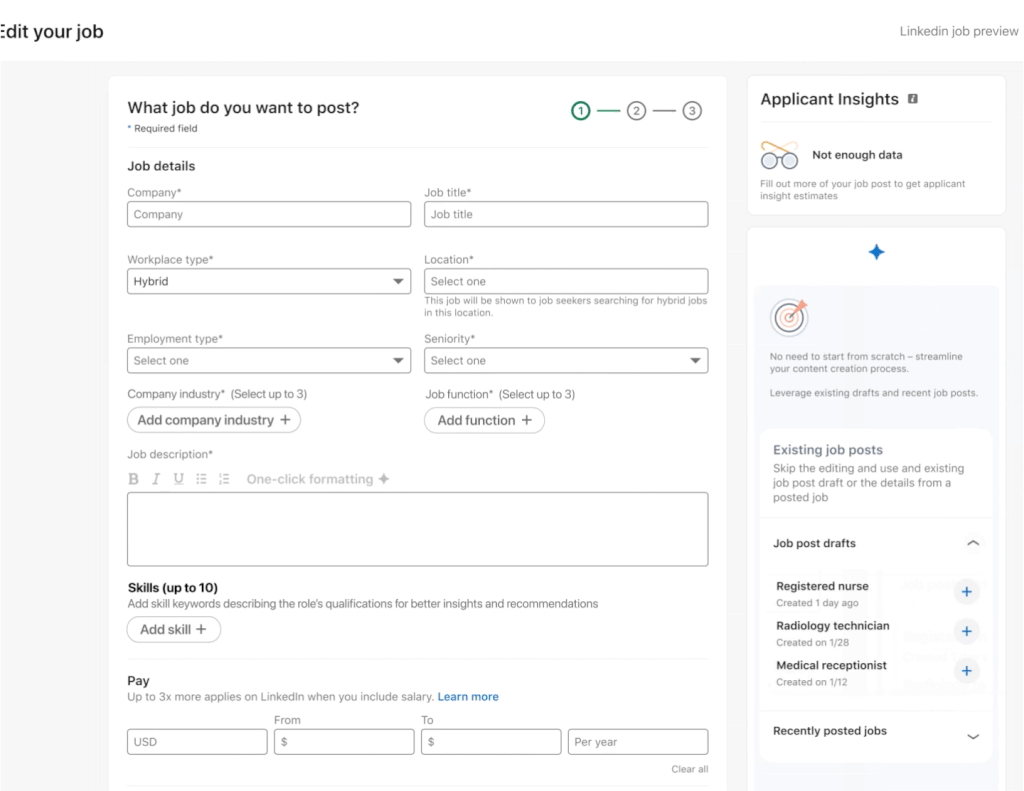Authored by Dan Schawbel
Generation Alpha, born from 2010 onward, is poised to be one of the most technologically savvy and globally connected generations in history. Growing up in an era of rapid technological advancement and social change, Gen Alpha is expected to have a profound impact on the future of work.
Compared with Gen Z, they will be different in the workplace primarily due to their upbringing in an even more technologically advanced and globally interconnected world. With access to advanced digital tools and platforms from birth, members of Gen Alpha are expected to possess even higher levels of digital fluency and adaptability, potentially outpacing their predecessors in leveraging technology to drive innovation and collaboration.
Gen Alpha may exhibit a greater propensity for entrepreneurial ventures and remote work, as they are likely to prioritize autonomy, flexibility, and work-life integration from an early age. Gen Alpha’s values and expectations in the workplace may evolve in response to shifting societal trends and global challenges, shaping their approach to leadership, teamwork, and organizational culture in unique ways. While there may be generational differences, Gen Alpha is expected to build upon the foundations laid by Gen Z in shaping the future of work.
While there is limited data on Gen Alpha’s presence in the workplace due to their young age, projections and studies suggest intriguing trends. In today’s article, I share 11 predictions for how Gen Alpha will disrupt, change, and advance the workforce in the future and what that means for HR.
1. Gen Alpha will possess digital fluency and drive technological innovation
Gen Alpha is growing up in a digital-first world, where technology is seamlessly integrated into every aspect of daily life. The average Gen Alpha is estimated to have over 100 photos of themselves posted on social media before their first birthday and a Visa study found that 40% think AI, virtual reality, and smart assistants will be integral to their future careers. Gen Alpha is exposed to a wide range of digital tools and platforms — from smartphones and tablets to virtual reality and artificial intelligence — from an early age. As a result, they are likely to be highly proficient in using technology to solve problems, communicate, and collaborate, making them valuable assets in the workforce of the future. Moreover, Gen Alpha is expected to drive further technological innovation, leveraging their digital fluency to develop new solutions and disrupt traditional industries.
2. They will have an entrepreneurial mindset
Gen Alpha is predicted to possess an entrepreneurial mindset from a young age, characterized by creativity, adaptability, and a willingness to take risks. The Visa study found that over three quarters (76%) aspire to be their own boss or have a side hustle, versus 13% who want to work for others. Growing up in a rapidly changing world, Gen Alpha is likely to embrace uncertainty and see challenges as opportunities for innovation. With access to online resources, crowdfunding platforms, and social media networks, Gen Alpha will have the tools and platforms to launch their own businesses and pursue their entrepreneurial aspirations. As a result, we can expect to see a surge in startups and entrepreneurial ventures led by members of Gen Alpha, reshaping the economic landscape and challenging established business models.
3. They will prioritize flexible work arrangements and remote work
Gen Alpha is expected to prioritize flexibility and work-life balance in their careers, moving away from traditional 9-to-5 office jobs in favor of flexible work arrangements and remote work opportunities. Growing up in an era of digital nomadism and remote collaboration, Gen Alpha is likely to value the freedom to work from anywhere and at any time, leveraging technology to stay connected and productive. As a result, we can anticipate a shift toward more decentralized and flexible work models, with companies offering remote work options to attract and retain top talent from Gen Alpha.
4. They will emphasize purpose-driven work and social impact
Gen Alpha is predicted to place a strong emphasis on purpose-driven work and social impact, prioritizing careers that align with their values and allow them to make a positive difference in the world. According to a study by VML, 66% of Gen Alphas prefer to buy from companies that make a positive difference in the world. Raised in an era of environmental consciousness and social activism, Gen Alpha is likely to seek out employers who demonstrate a commitment to sustainability, diversity, and corporate social responsibility. As a result, we can expect to see a rise in demand for socially responsible companies and organizations, with Gen Alpha driving a shift toward more ethical and sustainable business practices.
5. They will thrive in collaborative, multicultural work environments
Gen Alpha is growing up in an increasingly interconnected and multicultural world, where diversity and collaboration are celebrated and valued. As a result, Gen Alpha is likely to thrive in collaborative work environments that foster creativity, innovation, and cross-cultural communication. With their global perspective and digital connectivity, Gen Alpha will bring a fresh perspective to workplace dynamics, challenging traditional hierarchies and promoting a more inclusive and collaborative approach to decision-making and problem-solving.
6. They will fuel expansion of the gig economy
Gen Alpha is predicted to contribute to the growth of the gig economy, opting for freelance and contract-based work over traditional full-time employment. With a preference for flexibility and autonomy, members of Gen Alpha will thrive in the gig economy, taking on multiple projects and gigs simultaneously to diversify their income and pursue their interests.
7. They will forge flexible education pathways
Gen Alpha will reshape traditional educational pathways, embracing flexible learning options and alternative credentials to acquire the skills needed for the future workforce. With a focus on lifelong learning and skill development, members of Gen Alpha will pursue online courses, microcredentials, and experiential learning opportunities to supplement their formal education and stay relevant in a rapidly changing job market.
8. They will spur a revolution in remote learning
Generation Alpha will drive the remote learning revolution, demanding innovative approaches to education that cater to their digital-native preferences and learning styles. With advancements in technology enabling immersive and interactive learning experiences, members of Generation Alpha will embrace online education platforms, virtual reality simulations, and gamified learning environments to acquire knowledge and skills.
9. They will champion mental health
Generation Alpha will prioritize mental health and well-being in the workplace, advocating for greater support and resources to address stress, anxiety, and burnout. A Pew study found that 40% of parents with children currently under age 18 are most worried about their children’s mental health and Razorfish found that 75% of 8-to-10-year-olds are already thinking about mental health. With a growing awareness of mental health issues and the importance of self-care, members of Generation Alpha will demand workplaces that prioritize employee well-being and offer resources such as counseling services, mindfulness programs, and flexible work arrangements.
10. They will embrace diversity and inclusion
Gen Alpha will champion diversity and inclusion in the workplace, promoting a culture of acceptance, respect, and belonging. In the U.S., almost half of those younger than 18 do not identify as white and 96% believe it’s important to treat all people fairly regardless of ethnicity. With a commitment to equity and social justice, members of Gen Alpha will advocate for diverse representation in leadership positions, inclusive hiring practices, and policies that support underrepresented groups, fostering a more inclusive and equitable workforce.
11. They will emphasize soft skills
Gen Alpha will place a premium on soft skills such as communication, collaboration, adaptability, and emotional intelligence, recognizing their importance in an increasingly digital and interconnected world. While technical skills remain essential, members of Generation Alpha will prioritize the development of interpersonal skills and emotional competencies to succeed in diverse and dynamic work environments.
Final thoughts
In conclusion, Gen Alpha is poised to disrupt and change the workforce in profound ways, from their digital fluency and entrepreneurial mindset to their values, expectations, and impact on workplace dynamics. With their technological proficiency, creativity, adaptability, and commitment to social impact, Gen Alpha will drive innovation, reshape industries, and redefine the future of work.
As employers and organizations adapt to accommodate the needs and preferences of Gen Alpha, we can expect to see a transformation in workplace culture, practices, and norms, ultimately leading to a more flexible, inclusive, and sustainable workforce for future Gens.
This post was originally published in the Workplace Intelligence Newsletter.




















